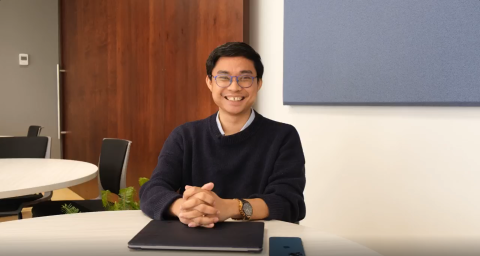Arwa Emhemed was born and raised in Libya, a region known for its irregular international migration to Europe. She dedicated her academic pursuits to study the impacts of policies governing human migration in the mediterranean region. Having finished her bachelor‚Äôs degree in political science, public administration, and international law from the American University of Beirut, Lebanon, she decided to pursue her master's in public policy at ∆ΩÃÿŒÂ≤ª÷–.¬Ý
Arwa has always been aware of the complexities and challenges that define her homeland. ‚ÄúDuring my undergraduate, I did my final capstone on the nexus between conflict and gender inequality, advocating for targeted policy interventions to address the urgent needs of affected communities,‚Äù highlighting the issue of policy intervention at the grassroots level in the global south region. She joined the fifth cohort of 2023-24 at Max Bell School of Public Policy, drawn by its emphasis on global policies and evidence-based policymaking. ‚ÄúI was particularly drawn to the concept of the Policy Lab at Max Bell,‚Äù Arwa explains, having felt the lack of a practical component in her previous studies. The Max Bell School‚Äôs Policy Lab is a cornerstone initiative that lets students integrate key program elements such as policy theory, data analysis, stakeholder trade-offs, and communication challenges, with evaluation based on group-produced policy briefings to solve a real-world policy issue.¬Ý
At Max Bell, Arwa found herself immersed in a dynamic academic environment that challenged her perspectives on policy making. ‚ÄúThis idea of not only tackling the old issues where the policies are written and implemented, but rather thinking about new issues that are emerging ‚Ķ the school really sets the heart of policy making and the contentious issues of how we go about that.‚Äù Core courses like the Global Political and Policy Landscape taught by Jennifer Welsh and Information and Media Literacy with Taylor Owen provided her with invaluable insights into emerging policy domains such as pandemic preparedness and AI governance, and how to tackle these issues head-on. ¬Ý
Arwa‚Äôs academic and professional focus has been firmly anchored in the complexities of the Middle East and North Africa region. Arwa‚Äôs research, particularly on the intersection of civil war and gender-based violence in Libya, has honed her focus on pressing policy imperatives. ‚ÄúThe crux of the matter lies in the imperative for targeted policies, particularly in supporting the victims,‚Äù she asserts, underscoring the urgency of the situation. Leveraging her experience at the helm of a research team, Arwa passionately champions the establishment of comprehensive support centers for survivors. These centers, she argues, should offer a spectrum of assistance including medical, psychological, and financial aid. ‚ÄúThis should be a paramount priority on the Libyan policy agenda,‚Äù she insists, advocating for tangible action to address the needs of those affected by conflict-induced violence. With a dedication to unraveling the intricacies of socio-political landscapes, she has emerged as a leading voice in advocating for change. Arwa embodies this inspiring optimism in her diverse cohort to overcome challenges.¬Ý
Reflecting on her MPP journey, Arwa highlights the Ottawa trip as her favorite networking opportunity. Learning from policymakers, senators, and parliamentarians, she gained insights into the work of governance at the highest levels and created connections amidst the corridors of power. As Arwa continues her journey at the Max Bell School, her sights are set firmly on the intersection of theory and practice, where policies are not just ideas on paper but catalysts for real change.¬Ý¬Ý¬Ý
Driven by a deep-seated desire to see her country and the world at large move towards stability and progress, Arwa is poised to leave an indelible mark. Her story is one of resilience and hope, a narrative that promises to inspire many as she continues to seek new avenues of light and opportunity in the global arena.¬Ý












